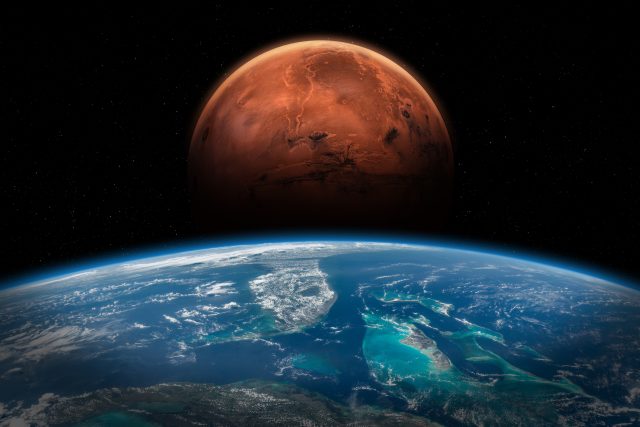This website uses cookies so that we can provide you with the best user experience possible. Cookie information is stored in your browser and performs functions such as recognising you when you return to our website and helping our team to understand which sections of the website you find most interesting and useful.
Beer yeast could be used to create drinking water on Mars
Beer yeast, which is being used to remove toxins from water to make it safe to consume, could be used in deep space projects in the future.

The suggestion, which began following an initiative where researchers at MIT and Georgia Tech used leftover beer yeast from Atlanta’s Scofflaw Brewing to remove lead from water to make it safe to drink, is now also being heralded as a way to eradicate other contaminants from water, including PFAS, microplastics and even used in space projects.
Speaking about the development, Scofflaw Brewing brewmaster Joe McIntyre told local reporters: “We use that yeast coming out of the tank. It’s probably the most important thing that we put into the beer. We don’t get fermentation without it. We don’t have alcohol without that”. But, he revealed that after the yeast’s lifespan, the brewery has historically disposed of the yeast and admitted that “most often it goes to a farmer for feed. They mix it in with different food”.
However, after the research scientists at Georgia Tech had started using yeast to remove lead from drinking water after hearing about thousands of children being exposed to high lead levels in Flint, Michigan, they also suggested it had greater uses and could be used elsewhere where clean water was unavailable, like space.
The news of beer yeast being used to remove lead from drinking water was highlighted recently in two new studies which had shown how it could helping with both the recycling of electronic scrap material and making water clean.
Speaking about the project, researcher Patricia Stathatou said: “We wanted something that would be cheap, easy to make, easy to reproduce, and could effectively remove and rapidly remove these toxic trace amounts from drinking water.”
Looking out for the next generations and their susceptibility to toxins, paediatrician Dr. Samira Brown also highlighted how lead in particular was especially harmful to children and explained: “One of the things that we have learned about lead is that even chronic low exposures can be very impactful, specifically to their IQ. Their neurologic system is very sensitive.”
Georgia Tech has now teamed up with researchers at Massachusetts Institute of Technology who have developed a hydrogel capsule to hold the yeast after it is cleaned, freeze-dried, and ground into a powder.
Stathatou explained: “The yeast are so small. They are more than 10 times smaller than my hair. They bind the lead and then the water can escape alone, free, while the yeast are retained.”
The yeast which is turned into capsules can then be added to a filter attached to a sink or water treatment plant with the researchers insisting that the yeast capsules could be modified to remove a whole host of dangerous contaminants or given other potential uses including being used in space. Athanasiou predicted that the spent yeast could someday help make it possible for people to live on Mars and explained that creating rare earth minerals was an area to develop.
Athanasiou added: “Like rare earth elements, minerals, things that are very expensive here on Earth. We need to make sure that we can live there [in space]. And we can use the water that is there, if there’s some water, and the resources in general.”
Georgia Tech researchers are already reportedly in talks with a major beer company to supply them with yeast for further experiments, but admitted they are still years away from the filtration methods being for at-home use. But, the scientists revealed that tests were already in progress where they were now already identifying ways to make the beer yeast and water cleansing discoveries work on a mass scale as the research continues.

